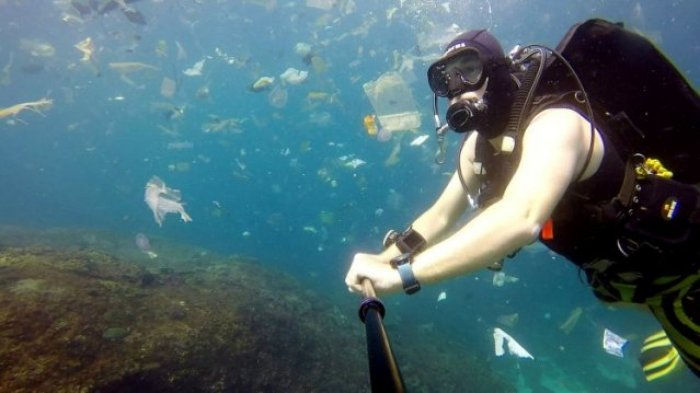Restrictions on Single-Use Plastics in Bali through the Pergub No. 97 Tahun 2018. Is It Effective?
- arianiedian

- Mar 9, 2019
- 3 min read
Updated: Mar 15, 2019
As many of us may know that the current Bali Governor just issued a regulation on the usage and the distribution of single-use plastics in Bali through Pergub No. 97 Tahun 2018. This is actually a proof that the regional government of Bali starts to concern about the single-use plastics waste that becomes a threat for the Bali tourism industry day by day. How? Let’s imagine, when we are so excited about our holiday in the Island that we have prepared for months; the beautiful view of blue oceans and beach keep coming into our mind, but once we are arrived, what we find only the beach full of trash brought by the swirling currents especially in the rainy seasons like now. I’m pretty sure with this condition, you don’t feel like to swim at all or even to just sitting around to enjoy the sea breeze.


More than that, it is very easy for us to find the pictures showing this catastrophe on the internet. Then the question is, will the regulation effective in solving this single use plastic waste? According to this new regulation, there are 3 types of single-use products that are restricted; plastic bags, Styrofoam and plastic straws. Not only the regulation forbids the production and distribution of those 3 products by any means, it also obliges any individual and organization who acts either as a producer, distributor, supplier or seller to provide any substitution of them.
In order to keep track of the application of this regulation, as mentioned on its article 18, the governor will then create a team who will monitor and evaluate if there is any breach done by individual, producers, distributors, suppliers or businessmen. If they are proven to do so, then as stated in the article 6, 7 and 9 section (1), they will be given an administrative sanction such as the revocation of its business license.

In the meantime, to solve one problem, it is required to find real cause of it first. As we live in this country for many years, we must know what the shopping habit of our people. The amount of modern shops in Indonesia, as in Bali too, is not that many compared to the amount of the small traditional shops and street stalls. If we look around us, how many of them we could find? Too many. Even within few hundred meters, we may find more than 10 of them. We all know that all of these sellers using the forbidden single use plastics as mentioned in the regulation. So the next question is, if there are at least 2 of them within every 200 meters and they have at least 10 customers in a day, how many single-use plastics used? Let’s also think, what if they are the street food sellers who usually can be found in front of schools? In a day, how many customers they have? And do these type of sellers have business license? If not, then how can the government oversees their obedience to the regulation, moreover because these sellers never really stayed in one place for so long?
Therefore, when the application of the Pergub No. 97 Tahun 2018 is more focused on the modern and middle up businesses, I’m quite pessimistic that this regulation is able to solve the single-use plastic waste issue in Bali. It may have more effectiveness in the developed countries where it’s almost impossible for us to find illegal street sellers, but I’m not sure if it’s in developing countries like Indonesia. However, I really appreciate the regional government of Bali’s effort to eliminate this problem. I do have hopes that soon, not only in Bali but also nation-wide, the Indonesian government would take more actions into this problem by issuing more comprehensive regulations that touches its core sources, along with the education and socialization to everyone, from bottom to top, about the threat these single-use plastics bring to our environment and on how we could contribute in reducing its impact to save our beloved mother earth.




Comments